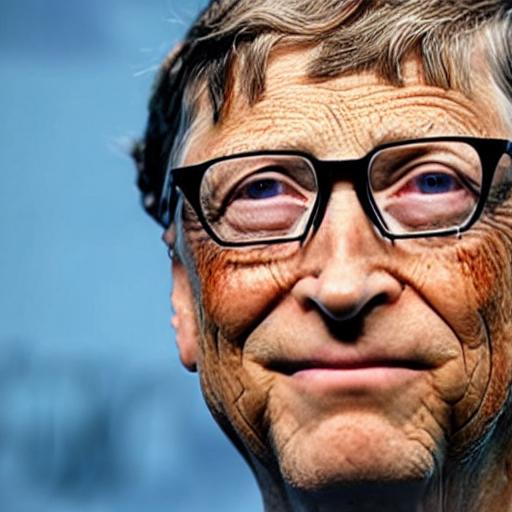Bill Gates has been reflecting on AI a lot, and he has now written down his ideas.
The co-founder of Microsoft outlined his opinions on the future of artificial intelligence in a seven-page letter titled “The Age of AI has Begun”. The creation of AI, he claimed, is as fundamental as the microprocessor, the personal computer, the internet, and the mobile phone.
The letter was delivered a week after OpenAI, the company that created ChatGPT, revealed the much anticipated upgrade of their AI model, GPT-4, and on the same day that Google debuted Bard, an AI chatbot that joins Microsoft’s Bing in the AI arms race.
Gates has already expressed his enthusiasm about AI’s potential applications, including as a tutor in the classroom and a source of medical advice for those who don’t have easy access to doctors.
In the letter, the billionaire also expressed concerns about artificial intelligence, such as the chance that humans will misuse it and the development of superintelligent, or “strong,” AI that may “form their own goals,” as AI technology advances.
In the letter, Gates expanded on these concepts by outlining his beliefs on how AI may be used to reduce global imbalances in the workplace, healthcare, and education, as well as as a tool to increase people’s productivity.
A white-collar employee is on call to assist you with a variety of chores
Gates discusses how AI could be applied in the workplace as a “digital personal assistant” to boost worker productivity, a concept he originally discussed in February. Email management and writing could be aided by AI when integrated into digital work products like Microsoft Office, Gate wrote. He claimed that these “personal agents” created by AI might serve as resources for workers to interact with because they are armed with extensive information and data about their firm and industry.
GPT’s ability to convey thoughts will grow more like having a white-collar professional available to help you with various jobs as processing power gets cheaper, he said.
A computer assistant to perform menial tasks for healthcare personnel
According to Gates, AI in the healthcare sector might free up healthcare staff from duties like making insurance claims, filling out paperwork, and writing doctor’s visit notes.
According to Gates, AI might make medical staff in underdeveloped nations more productive with the patients they do see. In these nations, many individuals in those countries never get to see a doctor. The care of people who don’t reside close to medical facilities may also benefit from AI, Gates suggested in his paper.
AI is being utilized in healthcare to evaluate medical data and create pharmaceuticals. Nevertheless, the upcoming generation of AI technologies may help with anticipating medication adverse effects and calculating dose levels.
AI could assist in designing seeds that are adapted to local climates for crops and livestock in underdeveloped countries, as well as the development of livestock vaccines. These advancements may be particularly crucial as excessive weather and climate change put even more tension on subsistence farmers in low-income countries.
Teachers won’t disappear, but they will need to adapt
According to Gates, AI will revolutionize education in the next five to ten years by providing students with content that is personalized to their learning preferences and by identifying the factors that both inspire and deter students from pursuing certain subjects.
AI might also help teachers by planning lessons and evaluating how well their students understood the material being covered in class.
The letter states that even when technology is at its best, learning still depends on strong bonds between students and teachers. It will complement, but never take the place of, the work that teachers and students undertake together in the classroom.
So that students from low-income households don’t get left behind, Gates wrote, AI must also be equally accessible to low-income schools in the US and around the world.
Instructors will also need to adjust to kids using cutting-edge devices like GPT in the classroom. Gates cited a case in which instructors allowed students to use GPT to create an initial version of an essay that they would subsequently be required to customize.
In order to fully profit from this amazing new technology, Gates stated, we’ll need to both guard against the hazards and share the advantages to as many people as possible.








